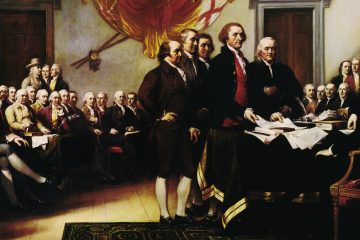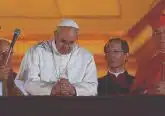Stewardship and the Universal Destination of Goods
The first two chapters of Genesis are the foundation of Catholic moral theology, including its teaching on stewardship. Rather than communicate the mechanics of creation, the beginning of Genesis communicates something about the purpose, nature and order of created reality. More to the point, the emphasis in Genesis 1 and 2 is on God’s creative sovereignty and the place of the human person within creation. This includes the social and embodied nature of the human person as a co-creator with God and as a conservator of the earth.
CREATION IS GOOD IN ITS ESSENTIAL NATURE
Everything that exists (other than God) is created by God. Therefore, all creation is good in its essential nature. Moreover, the structure of the first creation account in Genesis 1 through 2:3 tells us that aspects of creation are ordered toward purposes and ends; nature is not random— rather, it has a hierarchical structure. For example, on the second day, God creates water and air; on the corresponding fifth day, He creates swimming and flying creatures, which are served and sustained by air and water. Similarly, on the third day, land and plants are created. These correspond to the land animals (including the human ones) created on the sixth day. The land and plants of the third serve and sustain the animals of the sixth. On the seventh day, God did not create—He rested. This indicates that the prior six days of creation are ordered toward their proper end of rest in God’s love and providence.
Taken together, this is our mandate to care for and preserve those “lower” things for the continued use and good of the higher. Because creation is ordered toward the good of the human person, which alone is ordered to maintain and cultivate the garden, we have the obligation to sustain and protect creation.
Of course, creation is fallen along with humankind. Thus, after the fall of humanity in Genesis 3, the goodness of paradise in chapter 2 is compromised in the same way that the goodness of the man and woman are compromised. This compromise can be characterized as alienation: Humans are alienated from God, from one another, and from nature. All relationships are now disoriented from the natural order of creation. Thus, rather than yielding its fruit harmoniously and cooperatively, the earth gives up its goods reluctantly and grudgingly.
But creation’s fallenness does not invalidate the fundamental goodness in its intended nature. Nor is the goodness of creation completely annihilated by the fall, any more than the nature of the human person is destroyed. Good remains, albeit in a degraded form. Because God is all good, all that comes from God is good. The “fallen part” of the human person is redeemed in Christ. Redeemed people, then, are called to restore what has been degraded. Built upon the foundation of creation and redemption, our mandate is to cooperate with God in propagating, restoring and maintaining the world in its goodness.
MULTIPLYING & CONSERVING
It is clear from this twin obligation that multiplying and conserving are understood to be consistent with one another, rather than contradictory or antagonistic. Considered together, in fact, they are the basis for a theology of the sustenance and care of creation. Multiplying and conserving are related to what the Church calls the “universal destination of goods.” The goods of creation are intended for the good of all humanity. Thus, we do not create and sustain solely for our own individual use, but rather for the good of all. This implicates even our decisions about procreation. Intentional openness to children is no less a part of the mandate to care for creation than are policies and practices to conserve resources. The mandate is to create and sustain, as two aspects of the same cooperative activity with God.
This mandate also includes the use of our personal or private property, the ownership of which is qualified by the universal destination of all created goods. To be sure, the Church recognizes the propriety of private property, which is assumed and protected as early as the Ten Commandments. The command not to steal or covet necessarily implies the legitimacy of ownership. Jesus, in His parables and associations, acknowledges the good of private personal property. But private ownership is qualified by the reminder that we are stewards of the things that God has created rather than lords over any part of His creation that we might possess.
To the extent that human creativity contributes to the development of wealth, it is only because we have collaborated with what we have been given. But “the possession of material goods is not an absolute right,” explains Pope St. John Paul II in his 1989 encyclical, Centesimus Annus. Rather, private property “is under a ‘social mortgage,’ which means that it has an intrinsically social function.” Personal possession of wealth is “based upon and justified precisely by the principle of the universal destination of goods,” concludes Pope St. John Paul II.
Stewardship encompasses much more than recycling reusable goods or moderating consumption. While those are indeed legitimate concerns, the universal destination of goods suggests that stewardship reaches more deeply into the richness of Catholic moral theology. Sustenance of creation necessarily includes increasing goods, as well as using them properly and prudently. This includes the good of human life.
 Dr. Kenneth Craycraft is an attorney and the James J. Gardner Family Chair of Moral Theology at Mount St. Mary’s Seminary & School of Theology.
Dr. Kenneth Craycraft is an attorney and the James J. Gardner Family Chair of Moral Theology at Mount St. Mary’s Seminary & School of Theology.
This article appeared in the November 2023 edition of The Catholic Telegraph Magazine. For your complimentary subscription, click here.













